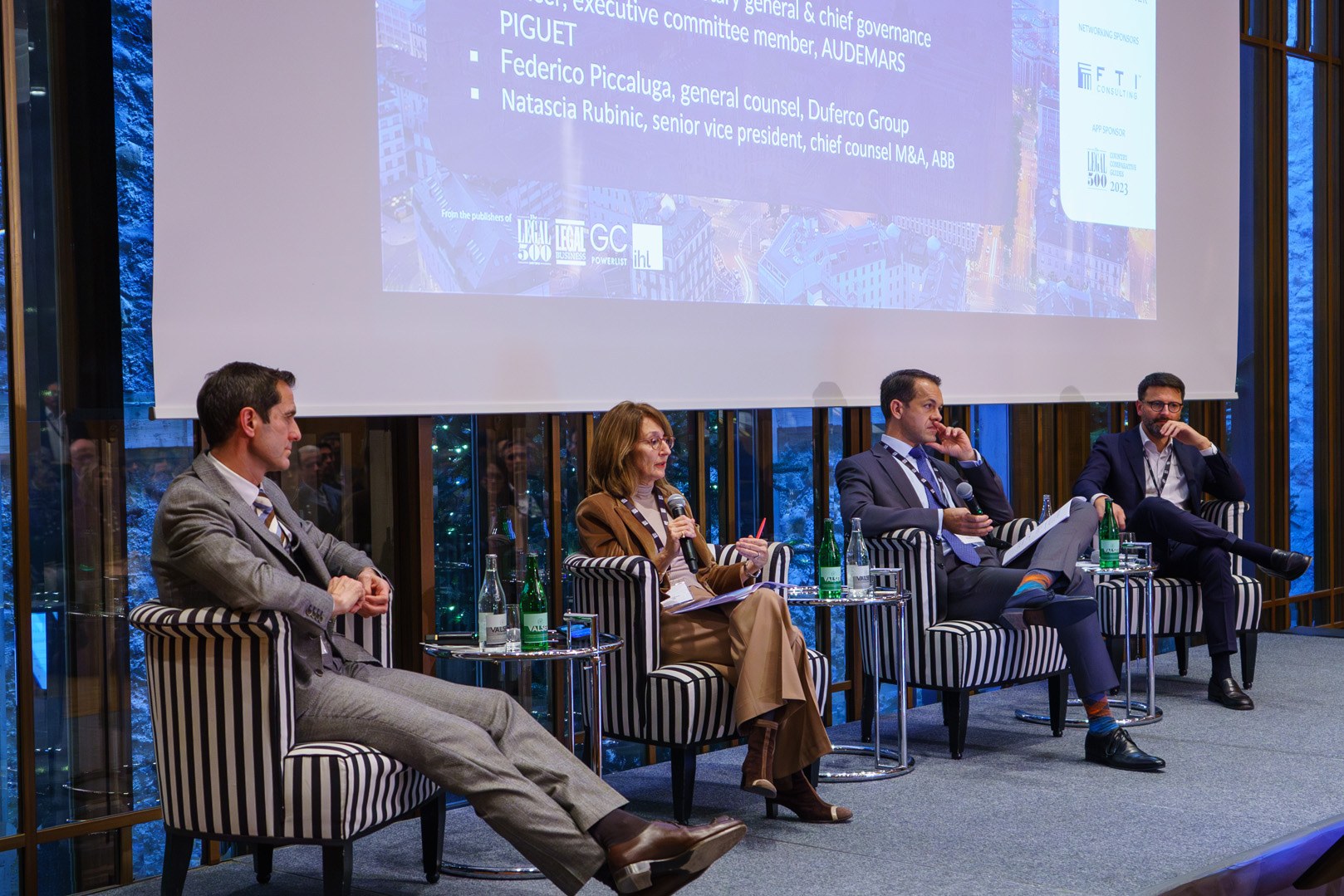Event Report
Our GC Summit Switzerland 2023 was a comprehensive exploration of critical business and legal topics, featuring four insightful panels that provided valuable insights and practical strategies.
Starting with ‘Navigating Joint Ventures – Benefits and Pitfalls’ sponsored by Wenger Plattner, the panel emphasised JVs as a legal framework where entities combine resources, expertise, and liabilities for mutual business objectives. Discussions delved into the necessity of well-crafted contractual agreements, covering aspects such as governance structures, capital contributions, profit and loss distribution, and dispute resolution. The panel acknowledged challenges inherent in JVs, including potential conflicts arising from conflicting interests, and varied management styles. Crafting comprehensive agreements that align with venture objectives is crucial for legal clarity as well as proactive mediation for sustaining successful partnerships.
Our second panel of the day, sponsored by Advestra, focused on carve-out transactions in the M&A environment. Carve-outs, increasingly attractive to financial and strategic investors, were discussed for their challenges compared to stand-alone acquisitions. Key structuring considerations, practical and legal challenges, and the importance of planning, due diligence, and documentation were explored. The panel also touched upon selected issues related to the effective integration of carve-out transactions.
After a quick and pleasant coffee Break, the Summit hosted the third panel of the day, focused on ESG and Internal Investigations, sponsored by Lalive. Panelists highlighted the difficulty of integrating ESG into existing business models, addressing supply chain complexities, and the importance of balancing sustainability goals with financial performance. Overall, the conversation likely underscored the intricate nature of ESG compliance, urging companies to navigate these challenges to meet the growing demands for responsible and sustainable business practices. ESG legislation is reshaping internal investigations, requiring corporations to scrutinise processes and supply chains. Understanding recent cases and regulatory shifts is crucial for compliance.
The final session, sponsored by Walderwyss, explored Algorithmic Fairness in the context of AI governance. Discussions centered on the difficulty of defining fairness as a legal criterion due to the intricate nature of the concept itself, which requires careful consideration of various factors and the recognition of the role that both algorithms and human decision-makers play in the process. Algorithms are designed to make decisions or predictions while humans are responsible for setting the criteria for fairness, making adjustments to algorithms, and intervening when necessary to prevent or address biased outcomes.
The evening concluded with a delightful assortment of drinks and canapés, complemented by a selection of gin, courtesy of Walderwyss. This provided a refreshing break for attendees and speakers alongside vibrant discussions, idea exchanges, and the cultivation of meaningful connections within the realms of both business and law.
A big thank you to all our sponsors: Advestra, Lalive, Wenger Plattner, Walderwyss, and FTI Consulting for such a memorable event.





